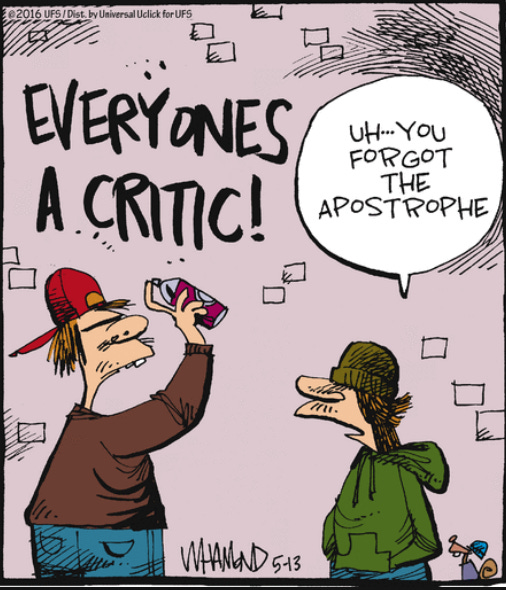The Physical Movement #206: Critical Culture Forcing Changes
American youth baseball association implements its own recipe to effect change to unacceptable parental behavior.
We live in a critical culture. A culture of critics.
Criticism can be defined as the expression of disapproval of someone or something on the basis of perceived faults or mistakes.
We live in a culture of disapproval. At sporting venues, many have time to criticize athletes. On the highways, it does not take long to see a driver flipping the bird to someone else. God forbid you take .1 second to move the car as the red light turns to green before the yahoo behind you lean on his horn to give you some critical feedback. Lots of critical takes on social media, about anything. All the time.
People are on edge, and they will voice their criticism every chance they get.
Nowhere is this culture of criticism (more aptly called verbal and emotional abuse) more damaging that in youth sport.
Those observing (on the outside) making comments of disapproval to those on the playing field (on the inside) trying to have fun and compete.
Coaches feel it. Decisions are thrown through the criticism filter and voiced on everything from strategy to junior’s playing time. The criticism also deflates the one area we should be focused on building up: our youth’s self esteem (confidence in one’s own worth and abilities).
Developing self-confidence and self-awareness enables children to develop healthy relationships, express their emotions and desires and become resilient, self-confident learners.
‘Once we believe in ourselves, we can risk curiosity, wonder, spontaneous delight or any other experience that reveals the human spirit’ - E.E. Cummings.
Not only does criticism negatively impact the development of our youth, it also impacts the amount of opportunities our kids have to play.
The Physical Movement has documented the importance of officials to the youth sport experience.
Referees and Umpires: They are Essential but Becoming Extinct.
The Physical Movement is a weekly newsletter delivered to our subscriber inboxes every Sunday. We cover leadership topics through the lens of youth sports for parents, coaches, officials and athletes.
TPM has also documented that we have a crisis due to a shortage of officials in youth sports.
OFFICIALly a Crisis!
Welcome to edition 179 of The Physical Movement. This week, we highlight the OFFICIAL crisis with the officials! Unfortunately, the scenario is all too normal in 2022. Officials getting berated by coaches, players and parents. More and more physically abused.
If you don’t think the situation is serious, google “abuse of youth sport officials” and you will find some awful examples:
A law enforcement officer, a sergeant no less, was charged with punching a soccer referee:
https://nypost.com/2023/03/29/florida-sgt-michael-russell-charged-with-punching-soccer-ref/
A baseball game between a group of 7-year-old kids degenerated into an all-out brawl with parents throwing haymakers, others cowering for cover and a woman even jumping on someone's back. The reason for the brawl: a parent didn't like the calls being made by a 13-year-old umpire.
Parents at a youth softball game were caught on camera fighting.
https://abcnews.go.com/GMA/News/video/parents-caught-camera-brawling-youth-softball-game-56023555
You can’t make this stuff up.
Where has the common sense, common courtesy, and any kind of filter on conduct gone?
With this kind of behavior, youth sport organizations are now in the position of coming up with altering how things are handled around the playing field to effect change.
To the rescue:
One organization is developing its own solution in New Jersey, USA by taking away the privilege of attending games to verbally abusive parents, unless they officiate.
One little league president struggled with a solution to the ongoing problem of a small number of parents who couldn’t seem to get their behavior in check. Making those parents experience umpiring firsthand seemed like the only way to help them see that officials are doing the best they can. Little League International has taken notice, and other regions want to try it.
From a recent Washington Post article:
Jon Solomon, editorial director for the Aspen Institute’s Sports & Society Program, agreed that this policy is worth trying. At minimum, it broadens the conversation about harassment to include more creative potential solutions.
“What this league is doing is just being a little bit more aggressive in saying, ‘You think you know what balls and strikes are or what’s an out and what’s safe, let’s see you try this. Let’s give you the perspective of how difficult it is to make some of these calls,’” said Solomon, whose organization aims to help sports serve the public interest.
While we may not be able to impact behavior on the highways or social media, we can effect change in the youth sport arena. Holding our most critical of parents accountable is one way to do this. Without some kind of intervention, there will be no more officials. No more opportunities to play.
The world continues to change right before our eyes.
New problems require new solutions.
What do you think of this solution in New Jersey?
Is it a good idea to put loudmouth parents in a position of officials?






